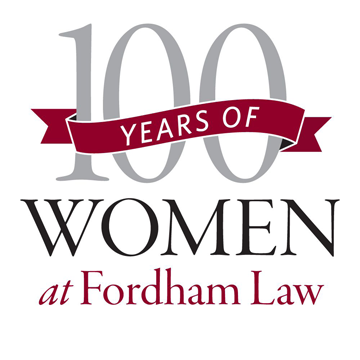 Nearly two decades of varied career experiences as a federal prosecutor, private practice litigator, and judicial law clerk prepared the Hon. Lauren Louis ’00 for nearly everything she has encountered in her initial months this year as a magistrate judge with the U.S. District Court for the Southern District of Florida. Still, one aspect of the job took her by surprise—a phenomenon judges call “losing your first name.”
Nearly two decades of varied career experiences as a federal prosecutor, private practice litigator, and judicial law clerk prepared the Hon. Lauren Louis ’00 for nearly everything she has encountered in her initial months this year as a magistrate judge with the U.S. District Court for the Southern District of Florida. Still, one aspect of the job took her by surprise—a phenomenon judges call “losing your first name.”
The same people Louis practiced with, ate lunch with, and looked to for guidance on her own cases suddenly addressed her with a deference befitting her seat on the federal bench. She was no longer Lauren; she was Judge Louis. Likewise, their conversational dynamic had shifted.
“I have to remind myself that I don’t just speak on my own behalf anymore,” Judge Louis said, noting her newfound status as a voice of the court. Her intense desire to re-enter public service superseded any thoughts she might have had about altered relationships or being greeted with an honorific, she added.
For Judge Louis, her February appointment to the Southern District of Florida bench resembled something of a homecoming. She clerked for the Hon. K. Michael Moore ’76, now the Southern District of Florida’s chief district judge, after graduating from Fordham Law. Five months into her current tenure, Judge Louis likened her return to the judge’s chambers to rediscovering a language that she last spoke in high school.
“Clerking for Judge Moore was so informative because of the ways he allowed us to work our cases,” Judge Louis recalled. “He put a tremendous amount of confidence in us, which in turn was confidence boosting.”
Judge Louis’ confidence in her new position of authority also owes a great deal to her career stops after she clerked with Judge Moore, she said. For instance, her experience writing search warrants as a federal prosecutor with the major crimes unit of the U.S Attorney’s Office for the Southern District of Florida provided her “an enormous leg up on criminal duty,” she explained. Her five years as an assistant U.S. attorney included 25 jury trials and two arguments before the U.S. Court of Appeals for the Eleventh Circuit.
Competing in the Philip C. Jessup International Law Moot Championships, as a member of the Moot Court Board at Fordham, prepared Judge Louis to argue before the Eleventh Circuit, she said. She described her time at Fordham as “electrifying and awesome,” and revealed she still has the textbooks of her favorite professors, including Mark Patterson.
In 2006, Judge Louis left the U.S. Attorney’s Office to join Boies Schiller & Flexner’s Fort Lauderdale office, where she handled complex commercial litigation for both plaintiffs and defendants. While there, she developed an appreciation for discovery practice that has proven a boon during her brief time on the federal bench.
“I am happy to roll up my sleeves and get to the bottom of discovery disputes,” Judge Louis said, adding that not all judges share her affinity for this kind of work. Her private firm experience highlighted the need to have patience and empathize with attorneys during this process, she added.
Patience and empathy also characterize Judge Louis’ work with Legal Up!, for which she has volunteered for over eight years. Legal Up! pairs lawyers and judges with groups of at-risk youth with the goal of empowering them with knowledge on legal topics including tenant rights, fairness in contracts, and their rights and responsibilities under the law. Judge Louis leaves these gatherings feeling “completely buoyed,” she said, knowing she has shared her experience with children whose previous contact with law enforcement is often negative.
In addition, Judge Louis noted that volunteer work is a fantastic way to develop relationships and discover career opportunities among like-minded lawyers and judges. The potential for building meaningful professional relationships is far greater than most conventional bar or social functions because the interactions are at a much greater depth, promote respect and bonding, and involve working toward a common goal of betterment of a segment of the community.
In February, Judge Louis became the seventh female magistrate judge currently sitting in the Southern District of Florida. Much credit is owed, she said, to the trailblazing path of those who have come before her, including Chief Magistrate Judge Andrea Simonton and Judge Lurana S. Snow. At the time of Judge Louis’ appointment, four of the last six magistrate judges appointed to the Southern District of Florida bench were women.
“Our district has an increasingly gender-neutral bench, and I hope that other women in the district feel, as I do, that there are no gender bias when seeking these appointments,” Judge Louis said. “It’s a great thing that women in our district are going after these positions.”
During the 2018–2019 school year, Fordham Law School is celebrating 100 Years of Women.

